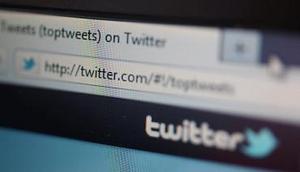 The past week the news has been consumed by the Anthony Weiner fiasco. His mis-use of Twitter is obviously very regrettable and it ought to cause each of us on Net to pause and ask ourselves: Are we doing good --are we responsible-- by having a digital presence? What can be learned from Weiner (his own political fate has yet to be decided)? One lesson to learn: don't let virtual replace the dignity of the personal relationship. The the thrill Weiner may have had for a second has vanished all-too-quickly to be real.
The past week the news has been consumed by the Anthony Weiner fiasco. His mis-use of Twitter is obviously very regrettable and it ought to cause each of us on Net to pause and ask ourselves: Are we doing good --are we responsible-- by having a digital presence? What can be learned from Weiner (his own political fate has yet to be decided)? One lesson to learn: don't let virtual replace the dignity of the personal relationship. The the thrill Weiner may have had for a second has vanished all-too-quickly to be real.
Elizabeth Drescher, a Santa Clara University professor of Religious Studies, published a piece last week, "Social media rebooting religion" where she argues that social media is helping to connect unconnected people to a religious identity: "It seems clearer and clearer that the ever-growing dominance of social media - especially on mobile computing devices like smart phones and tablets - is bringing religion back into daily lives of many, while challenging religious institutions to revise notions of spiritual identity and community in both online and face-to-face worship." Of course, what does Drescher mean by "religious identity" and how does one know if you have found one?
Professor Drescher puts her finger on something we "in the religion business" ought to pay attention to: How is the personal avoided by the digital, even if the digital provides new opportunities to connect? People are spiritually hungry and are looking for an authentic experience of God that has lasting meaning. I see, however, Drescher's examples of how some ecclesial communities re-visioned their ministry to be too trendy and superficial. No doubt the Lutherans and the Episcopalians in Drescher's article help some people be connected with "institutional religion", but I don't see how these trendy ideas can endure and be helpful.
The Catholic Church has to be engaged in the virtual world of social media as we have heard from Benedict XVI. By "Catholic Church" I mean not only the pope and bishops but also the priests, the monks & nuns and the lay faithful. I think we have a duty and a responsibility to help others seek God honestly and more personally in various media forms: print, radio/TV, cyberspace. Our absence allows for the dissenting crowd who purport to be "Catholic" to distort orthodox theology, diminish the true practice of religion and to revise the dignity of human person.
What does one do? I'd suggest that we inform ourselves, talk to a solid member of the clergy, find concrete, real --not virtual-- opportunities to learn the faith and to participate in community activities, including Mass. The criteria for this judgment is to find a place where the people at Church are kind and worship has good preaching, sacred music and ritual reveal the face of God. A Catholic response to those wary of social media is to be involved with a culture of worship, learning and service. The matter at hand is to have firm coherence between the personal and virtual. The Net is not a bad thing, it runs amok when the virtual replaces the personal.


Beautiful insights. Thank you for sharing:)